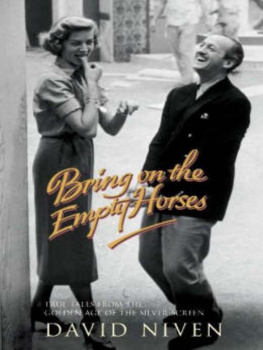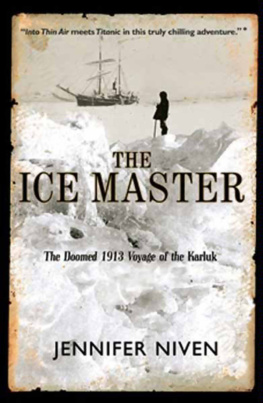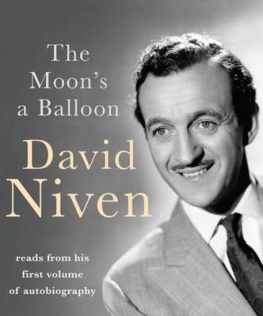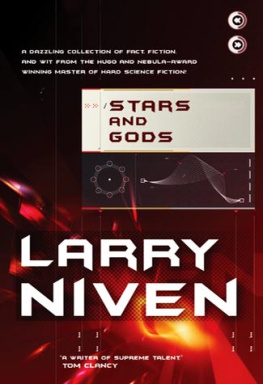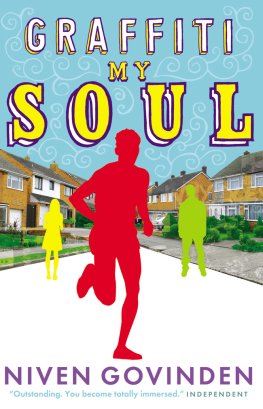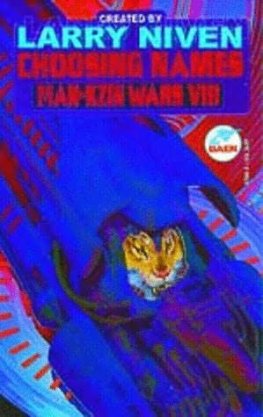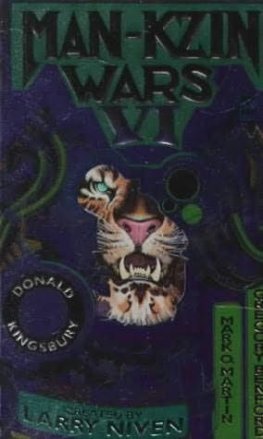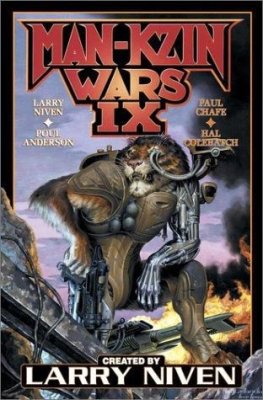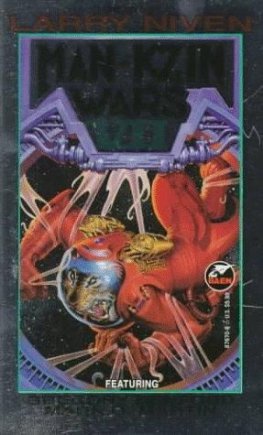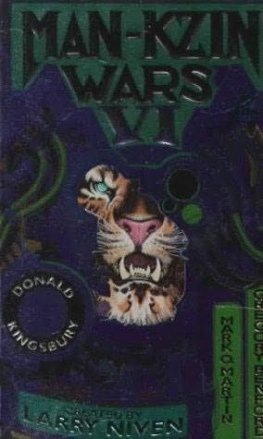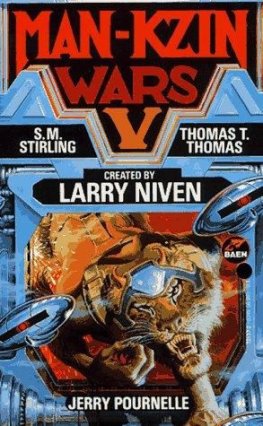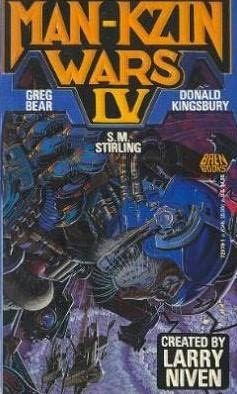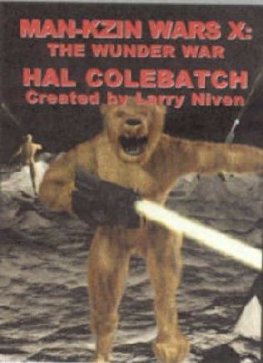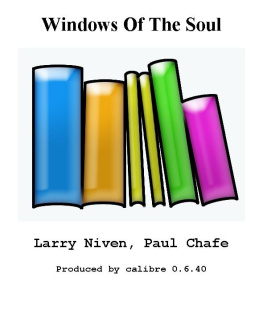Niven - Bring on the empty horses
Here you can read online Niven - Bring on the empty horses full text of the book (entire story) in english for free. Download pdf and epub, get meaning, cover and reviews about this ebook. year: 1975, publisher: Putnam, genre: Non-fiction. Description of the work, (preface) as well as reviews are available. Best literature library LitArk.com created for fans of good reading and offers a wide selection of genres:
Romance novel
Science fiction
Adventure
Detective
Science
History
Home and family
Prose
Art
Politics
Computer
Non-fiction
Religion
Business
Children
Humor
Choose a favorite category and find really read worthwhile books. Enjoy immersion in the world of imagination, feel the emotions of the characters or learn something new for yourself, make an fascinating discovery.
- Book:Bring on the empty horses
- Author:
- Publisher:Putnam
- Genre:
- Year:1975
- Rating:4 / 5
- Favourites:Add to favourites
- Your mark:
- 80
- 1
- 2
- 3
- 4
- 5
Bring on the empty horses: summary, description and annotation
We offer to read an annotation, description, summary or preface (depends on what the author of the book "Bring on the empty horses" wrote himself). If you haven't found the necessary information about the book — write in the comments, we will try to find it.
Niven: author's other books
Who wrote Bring on the empty horses? Find out the surname, the name of the author of the book and a list of all author's works by series.
Bring on the empty horses — read online for free the complete book (whole text) full work
Below is the text of the book, divided by pages. System saving the place of the last page read, allows you to conveniently read the book "Bring on the empty horses" online for free, without having to search again every time where you left off. Put a bookmark, and you can go to the page where you finished reading at any time.
Font size:
Interval:
Bookmark:
Bring On The Empty Horses
David Niven
TWO QUEENS
SUMMIT DRIVE:
The Prisoner of Zenda
LONG SHOTS AND CLOSE-UPS
(Thou Shalt Not be Found Out)
INTRODUCTION
IF at this moment you are in a bookstore leafing through these early pages and wondering if the whole thing is worth a sizable expenditure, may I suggest that you keep your back towards the salesman and read on because, coming up, is a brief description of what this book is all about
To be an actor it is essential to be an egomaniac, otherwise it just doesn't work. The supreme act of egomania is to sit down and write one hundred and thirty thousand words about oneself. That I have already done in The Moon's a Balloon so you will be relieved to learn that this is not a book about David Niven at least, it is not meant to be. Unfortunately, the actor's urge to take up a firm position at centre stage is a strong one and if, despite valiant efforts to remain in the wings, I have, on occasion, eased myself forward I apologise.
This book is about 'Hollywood'; not the whole mishmash, because that has been done a hundred times and anyway, the canvas is too huge and quite beyond my mini brush-Work, so I have attempted to splash a little colour on just one corner the twenty-five years between 1935 and 1960.
I was there from 'Extra' on down (or up it's for you to decide), but I have made little effort to keep things in chronological order; provided the people and events coincided with the allotted time-span, I have just described them as I saw them.
The period covered in this book is often hailed as 'The Great Days of Hollywood': perhaps they were, perhaps not: but, with those 'days' gone forever, it is certainly not my intention to try and prove that they were superior to the 'Hollywood' of today.
If now, Hollywood is booming and full of talent, but controlled by conglomerates, lawyers, bankers, computers and a handful of agents, then it was booming, filled with great personalities, but controlled by arrogant Moguls, overcrowded and smelling of despotism, nepotism and Black Lists.
Hollywood was Lotus Land between 1935 and 1960 and bore little relationship to the rest of the world, but it was vastly exciting to be part of a thriving, thrusting 'first growth' industry the greatest form of mass entertainment so far invented, and if exaggeration became the 'norm', it was hard to recognise the fact, when a 'Great Star' could confidently expect to receive 20,000 letters a week and newspapers all over the world daily set aside several pages for the news and gossip pumped out by the Hollywood self-adulation machines.
There was friendliness, generosity, excitement, sadness, success, despair and no smog in that long-ago Hollywood, but 'high' on Lotus few of the inhabitants, when World War II shattered the calm, realised that all the old standards would be changed, including the public taste in canned entertainment, and like an out-of-condition heavyweight Hollywood was ill prepared to cope with the second onslaught which followed quickly on the heels of the first the sudden advent of Television. By burying its head in its arms and hoping that The Enemy would go away, it very nearly went down for the count.
But before Hollywood was forced to shift gears, the Moguls controlled the industry they had invented. They were master showmen; two hundred million people each week paid to see their product and among the names in lights above their theatres were Garbo, Gable, Astaire, Cooper, Dietrich, Grant, Chaplin, Bogart, Garland, Hepburn, Flynn and Davis. It was a fascinating canvas, there will never be another like it and I hope, by trying to add a little first-hand light and shadow, that I have not spoiled it.
DAVID NIVEN Kuala Lumpur Malaysia
THE PLAYPEN
WHEN Gertrude Stein returned to New York after a short sojourn in Hollywood somebody asked her 'What is it like out there?'
To which, with little delay and the minimum of careful thought the sage replied 'There is no "There" there'.
To try and describe to the reader the self-styled 'Glamour Capital of the World' it seems best to do so as it appeared just before the outbreak of World War II, because although this book describes some events between 1935 and 1960, that particular upheaval caused the number of inhabitants and automobiles in Los Angeles to double. Up until then there had been plenty of room and fresh air for everyone one square mile for every four persons to be precisevery little industry, the worst transportation system of any major U.S. city, and clear blue skies without a hint of 'smog' not a word invented by a local wit, but borrowed from the City of Glasgow where it had justifiably been in constant use since the turn of the century. Later, the reader will find a list of the actors and actresses who were in 1939 under contract to just one of the seven major studios, giving him an idea of the investment the Moguls had in talent and the problems they must have had in keeping that talent gainfully employed.
There were four ways to approach Los Angeles from the East Coast:
(1) By automobile, which took ten days of fast driving and entailed facing red dirt roads across large tracts of Arizona and New Mexico with no prospect of a motel at the end of the day.
(2) By train, leaving New York on the 20th Century Limited at 6 p.m. and standing respectfully aside while famous movie stars smiled for the New York papers as they were escorted by railroad officials along a red carpet to their sleeping compartments. On arrival at Chicago the following morning, the sleeping cars were shunted around the marshalling yards and by noon, were tacked on to the rear of the Santa Fe Chief (steam locomotives until 1939) which two days later puffed to a stop at the Union Station, Los Angeles where the famous movie stars perched on piles of matching baggage, and smiled for the Los Angeles papers.
(3) By plane, which was not for the faint-hearted a minimum of eighteen cramped and often nerve-racking hours flying in unpressurised and largely unheated twin-engined machines at low altitudes through sometimes appalling weather with the nasty possibility of thudding into either the Alleghenny or Rocky Mountains at one end of the trip, or
(4) As I did it by sea, an endless voyage of fluctuating comfort in a 'dry' ship via Cuba and the Panama Canal.
The whole Los Angeles area was subject to frequent earth tremors accounted for by an ill-advised proximity to the San Andreas Fault and on the very day of my arrival in San Pedro I had noted from the deck of S.S. President Pierce that people at dockside beneath a swaying water tower were scurrying about looking nervously upward, wondering which way it would fall. It didn't, as it happened, and the next morning the Chamber of Commerce routinely reassured us that there had been no cause for alarm. But it was perhaps an early warning that I was heading for the breeding ground of stresses and strains.
The 'Film Folk', I discovered, unwound at their favourite playgrounds, the beaches, the mountains at Arrowhead and Big Bear, and the desert at Palm Springs a tiny colony in the middle of Indian-owned land which boasted a main street and two hotels. Santa Anita Racecourse was also very popular with them and there were various Country Clubs which dispensed golf, tennis, and an extraordinary degree of segregation. Not one had a black member and several refused to have Jewish members, which prompted the Jewish community to start their own Country Club and to take in no Gentiles (they also found oil in satisfactory quantities beneath their fairways which provided them with a splendid opportunity for nose-thumbing): but the 'topper' was the prestigious Los Angeles Country Club which adamantly refused to have anything whatever to do with
Next pageFont size:
Interval:
Bookmark:
Similar books «Bring on the empty horses»
Look at similar books to Bring on the empty horses. We have selected literature similar in name and meaning in the hope of providing readers with more options to find new, interesting, not yet read works.
Discussion, reviews of the book Bring on the empty horses and just readers' own opinions. Leave your comments, write what you think about the work, its meaning or the main characters. Specify what exactly you liked and what you didn't like, and why you think so.

